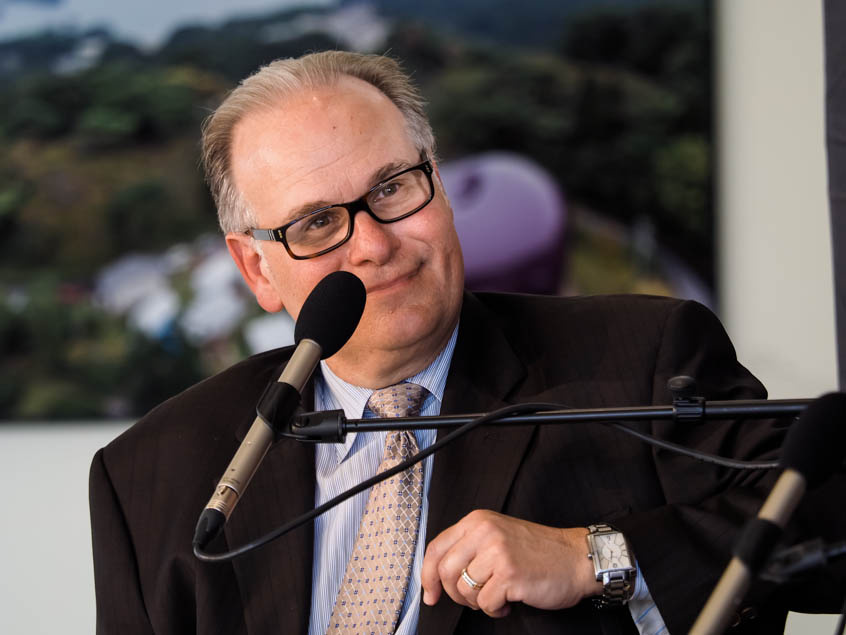What the documentary crew does is praiseworthy, almost Nobel Prize praiseworthy. They go right into the middle of a war zone.
Transcipt
FilmWeek on AirTalk (NPR) , hosted by Larry Mantle.
April 20, 2018
[LARRY]
The documentary The Heart of Nuba goes to Sudan to the remote area of the Nuba mountains where Dr. Tom Catena is the only doctor for a couple hundred miles.
Wade what did you think of The Heart of Nuba?
[WADE]
I think this is such a devastatingly essential film to see, it’s so hard to watch. But what the documentary crew does is praiseworthy, almost Nobel Prize praiseworthy. They go right into the middle of a war zone. If anyone thinks the conflict in Darfur went away it didn’t, it just migrated to another part of the country.
The people in the Nuba mountains, it’s a very isolated area but it’s a very old culture, it’s a very ancient culture. And it’s a culture where people of all different faiths — Christians and Animists and Muslims — all live in harmony, and in peace.
Unfortunately there’s the ongoing racist problem of the government, [led] by the convicted war criminal Omar Al-Bashir, who believes that the black Africans are inferior. And on top of that they’re sitting on top of some very wealthy mineral lands, them and their cows and their farm lands. And he wants to get rid of them. He is literally trying to execute genocide against the Nuba people.
In the middle of this is a lone hospital and a lone surgeon, a Catholic hospital and Dr. Tom Catena, who’s the only physician in this hospital. And all of their medical needs have to be cared for by him alone. His devotion to these people is extraordinary, and what he goes through.
You see bombs falling, in the film, in the first few seconds. It’s just unbelievable, the level of dedication he has for these people, the love he has, and the self-sacrifice. It’s through the roof.
It’s a very hard film to watch.
[LARRY]
BUT WELL MADE?
[WADE]
But so well made. And what they do with the cameras, in moments of urgency, when there’s a raid, they will hand him the camera. The filmmakers will take shelter and then he has the camera. They do things to make sure the film is done in a faithful, journalistic way.
[LARRY]
CHRISTY WHAT DID YOU THINK OF THE HEART OF NUBA?
[CHRISTY]
It is devastating to watch. But it’s also extremely worshipful of this man. And he is a saint, he absolutely is. I cannot imagine that kind of dedication, that kind of sacrifice. He talks about yeah, how he gets lonely sometimes, and his family would like him to settle down.
It also points out his background. He was a football player, a star football player at Brown University. He was All Ivy League. So his background is kind of interesting, too.
I would like a little more, I don’t know, “shading”, perhaps? It’s one tone in terms of how worshipful it is of him. But then again, he’s doing amazing work.
You mentioned the intimacy of the camera work. It’s not just during moments of crisis and bombs falling. There are surgeries where we are right there. He’s having to operate on this infant girl who has kidney cancer, and we’re right there. We’re right there when a woman’s having a C-section. He’s the gynecologist, the pediatrician, and everything in between. And yeah, it is gripping and hard to watch.
[LARRY]
AND DOES IT EXPLAIN HOW HE ENDED UP THERE?
[CHRISTY]
He always felt like he wanted to be called to use his medical expertise as part of a community. He felt really drawn to becoming part of the fabric of a totally different kind of place.
[WADE]
And it’s a religious imperative for him as well. It’s a Catholic hospital and he and his family are devout Catholics. He feels a certain obligation to fulfill that.
[LARRY]
The film is The Heart of Nuba, a documentary which shows what the daily life of Dr. Tom Catena is in the remote Sudanese area of the Nuba mountains.
Kenneth A. Carlson is the Director. The film is unrated. You can see it at Laemmle’s Music Hall Theater in Beverly Hills.
Listen
Click here to listen to Film Week. (The Heart of Nuba starts at 10:46):





